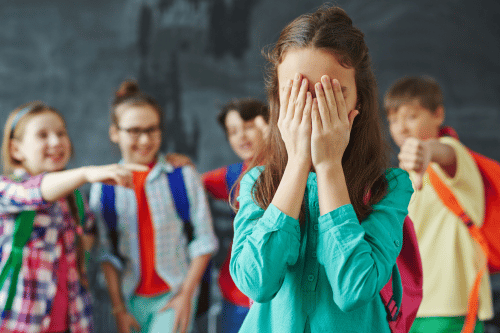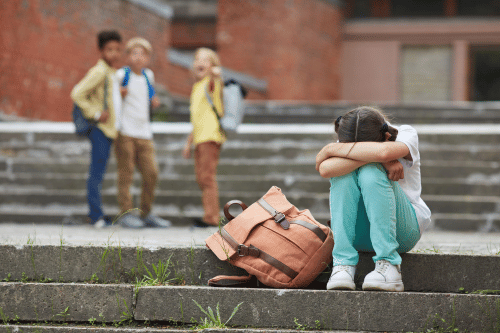The Effects of Bullying and Mental Health: How to Cope and Heal
Bullying is a serious issue that affects many adolescent students. The impact of bullying extends beyond school, leading tomental health issues, physical health problems, and social withdrawal. Bullying in schools can take many forms, from physical bullying and verbal abuse to cyberbullying and social bullying. The effects of bullying can last into adulthood, making it crucial to address this issue early and provide support for victims of bullying.
Definition of Bullying
Bullying is an aggressive behavior where a power imbalance is used to control or harm someone repeatedly. Different types of bullying include:
Physical Bullying
This form of bullying includes hitting, kicking, pushing, and causing physical injuries. Unexplained injuries and frequent stomach aches may indicate a child is experiencing frequent bullying.
Verbal Bullying
This involves hurtful actions, such as verbal abuse, name-calling, insults, and threats. These behaviors can lead to feelings of worthlessness and panic disorder.
Cyberbullying (Electronic Bullying)
With the rise of cell phones and social media, electronic bullying has become a growing issue. Bullying on children through texts, social media, and gaming platforms increases the risk of mental health difficulties and social isolation.
Social Bullying (Indirect Bullying)
This type of bullying, also known as relational bullying, includes spreading rumors, social interactions meant to exclude others, and embarrassing someone in front of peers. The dynamics of bullying often involve an imbalance of power, leading to feelings of helplessness in the victim.
Prevalence of Bullying
Previous studies have shown that bullying among adolescents is widespread. Research from UCLA Health and Charlie Health highlights that bullying behavior is most common between Grade 6 to Grade 10. In some cases, the correlation between bullying and mental health symptoms is linked to suicidal ideation and suicidal behavior.
Impact of Bullying on Mental Health

Short-Term Effects
- Mental health symptoms like anxiety and depression
- Feelings of fear, sadness, and social withdrawal
- Trouble focusing, leading to lower academic achievement
- Stomach aches and other physical impact of stress
- Social isolation due to lack of healthy relationships
Long-Term Effects
- Increased risk for mental health disorder
- Higher likelihood of depression in adulthood
- Development of psychosis or other severe mental health impacts
- Ongoing trust issues, making it harder to build supportive environments
- Higher risk of substance abuse as a coping mechanism
Coping Strategies for Victims of Bullying
Seeking Support from Trusted Adults
Talking to school staff, such as teachers, counselors, or a social worker, can provide immediate help. A record of bullying incidents can help bully victims get the support they need.
Engaging in Self-Care Practices
Practicing evidence-based lifestyle interventions, such as mindfulness, exercise, and journaling, can help reduce stress.
Considering Professional Therapy
Cognitive-behavioral therapy (CBT) is an effective treatment for mental health issues caused by childhood bullying. Mental health treatment from therapists or organizations like Adolesc Ment Health can help teens rebuild their confidence.
Role of Parents and Guardians

Recognizing Signs of Bullying
Parents should look for mental health effects such as frequent bullying, unexplained injuries, social withdrawal, or changes in behavior by frequency.
Providing Support and Encouragement
Parents can create a safe environment at home by having meaningful conversations and promoting prosocial behaviours.
Role of Educators and Schools
Implementing Anti-Bullying Policies
Bullying prevention programs in schools can help reduce bullying rates. School-related factors, such as student-teacher relationships, influence how effectively schools address bullying at school.
Creating Safe Environments
Encouraging healthy development and supportive environments within schools can prevent traditional bullying and improve mental health awareness.
Community Involvement
Supporting Awareness Campaigns
Programs from UCLA Health, Charlie Health, and other Bullying Resources can help educate communities about mental health services.
Promoting Inclusivity and Understanding
Addressing gender identity, sexual orientation, racial bullying, and other demographic factors can create a more inclusive community.
Conclusion
The relationship between bullying and mental health disorder is clear. Associations between bullying and risk for depression highlight the need for effective intervention. Schools, parents, and communities must work together to prevent workplace bullying, school students bullying, and other forms of bullying perpetration. Seeking mental health services and helpful resources can support victims in healing and regaining confidence. Future studies should continue focusing on mental health impacts and ways to create safe environments for all adolescents.

FAQ's
Bullying can cause severe mental health effects, including anxiety disorders, panic disorder, and feelings of isolation. Victims of bullying may struggle with depression in adulthood, suicidal ideation, and even substance abuse as a coping mechanism. The impact of bullying can lead to long-term emotional and psychological distress, affecting academic achievement, social interactions, and self-esteem.
Teens experiencing bullying at school or electronic bullying may show signs such as social withdrawal, unexplained injuries, stomach aches, declining grades, or avoiding school. Other indicators include feelings of worthlessness, frequent bullying-related stress, and changes in mood or behavior. Parents and educators should also look for school-related factors such as changes in friendships or avoiding certain peers.
Teens can cope by seeking support from trusted adults, engaging in self-care practices, and considering mental health treatment like Cognitive-behavioral therapy (CBT). Talking to a social worker, school counselor, or accessing mental health services can help them process their emotions. Participating in prosocial behaviours and building healthy relationships can also support recovery.
Parents should encourage open and meaningful conversations about bullying and monitor their child’s social interactions. Schools can implement bullying prevention programs, establish clear anti-bullying policies, and provide a safe environment for students. Educators should focus on effective intervention, supporting students who experience physical bullying, verbal abuse, or social bullying. Community-wide awareness efforts, such as programs from Charlie Health and UCLA Health, can further promote mental health awareness.










